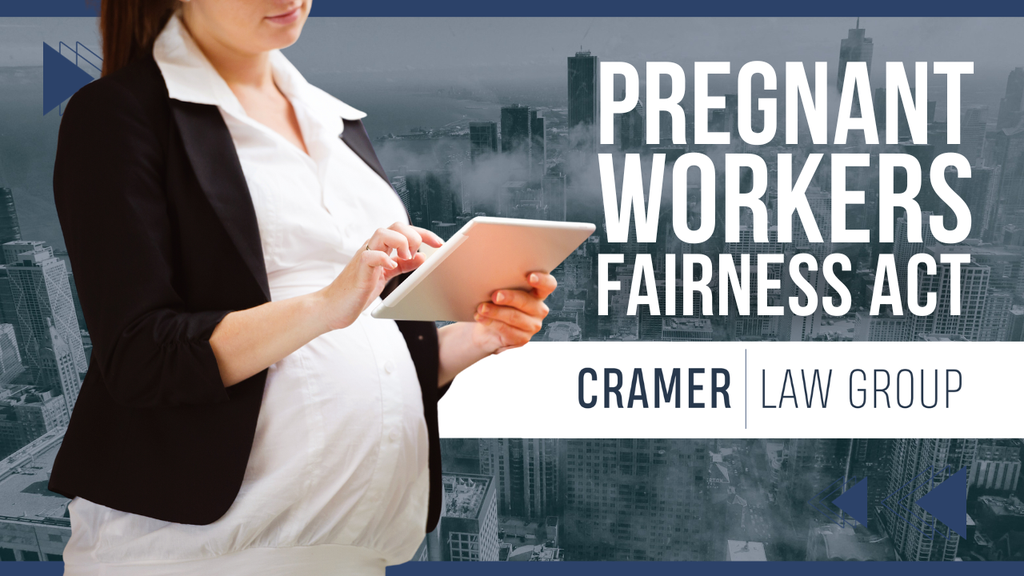
In a significant step towards supporting pregnant workers, the Pregnant Workers Fairness Act (PWFA) has recently come into effect. While the law was signed a few years ago, it is now fully operational, offering clearer protections for pregnant employees. If you’re a worker navigating pregnancy and employment, it’s important to understand what this law means and how it may affect your rights in the workplace.
The History of Laws Protecting Pregnant Workers
For years, pregnant workers have had some level of protection under existing laws. The Americans with Disabilities Act (ADA), for instance, has long recognized that pregnancy can sometimes require accommodations similar to those provided for disabilities. However, there was no specific law requiring employers to provide these accommodations.
In Illinois, the Illinois Human Rights Act also offered provisions for workers to request reasonable accommodations during pregnancy. Despite these protections, employers weren’t always clear about their responsibilities, and pregnant workers often had difficulty securing the accommodations they needed.
The Pregnant Workers Fairness Act: What It Does
The Pregnant Workers Fairness Act is designed to more clearly define and enforce the right of pregnant workers to request reasonable accommodations. Unlike previous laws, the PWFA separates pregnancy-related accommodations from disability-related protections, offering specific rights to pregnant employees.
Under the PWFA, employees who work for companies with 15 or more employees now have a clearer path to request reasonable accommodations. These can include extended breaks, the ability to work from home (in certain situations), and adjustments to job duties to ensure the health and safety of both the employee and their pregnancy.
What Is a “Reasonable Accommodation”?
One of the key provisions of the PWFA is the right to engage in an interactive process with an employer to determine a reasonable accommodation. This means that if you’re a pregnant worker, you can request accommodations, and your employer must have a conversation with you to see what is feasible. However, it’s important to note that the request for accommodations must be reasonable.
For instance, asking for time off for the entire duration of your pregnancy would not qualify as a reasonable accommodation. Instead, you might ask for adjustments such as more frequent breaks or working from home, if your job allows. However, the employer is not required to grant any request that would cause “undue hardship” on the business.
Understanding “Undue Hardship”
An accommodation request could be denied if it would pose an undue hardship for the employer. For example, if your job involves being physically present to manage a team or operate machinery, it might not be reasonable to request to work from home for nine months. However, there may still be room for flexibility, such as a hybrid work arrangement or adjusting your job responsibilities.
Ultimately, the goal of the law is to allow pregnant workers to continue working while ensuring that employers are not unduly burdened by the accommodations. Both sides should engage in a dialogue to find a reasonable solution that supports the health and well-being of the worker while maintaining business operations.
The Future of Pregnant Worker Protections
While the Pregnant Workers Fairness Act is a crucial step forward, it doesn’t cover all aspects of pregnancy-related employment issues. For example, the United States does not yet mandate paid maternity or paternity leave, though some employers may offer it voluntarily. If you’re planning on taking extended leave after giving birth, the Family and Medical Leave Act (FMLA) allows for up to 12 weeks of unpaid leave, but only for employees who have worked for their employer for at least one year.
In the future, there may be further advancements in worker protections, including paid leave policies, as society continues to evolve in how it supports working parents.
What Employers Need to Know
Employers must stay informed about their obligations under the Pregnant Workers Fairness Act and ensure they are in compliance. Many companies are updating their handbooks and educating HR staff about the new law to avoid legal challenges. Employers should be prepared to engage in discussions with employees regarding reasonable accommodations, as failure to do so could lead to discrimination claims.
Conclusion
The Pregnant Workers Fairness Act provides much-needed clarity and enforcement of accommodations for pregnant workers, offering better support during a critical time. If you’re an employer or employee with questions about your rights or responsibilities under this law, it’s important to seek legal guidance. The right accommodations can ensure that workers continue to thrive in the workplace while also protecting the needs of the employer.
If you’re unsure about how this law applies to your situation, contact Cramer Law for expert advice on how to navigate these new protections and ensure that your workplace is compliant.



